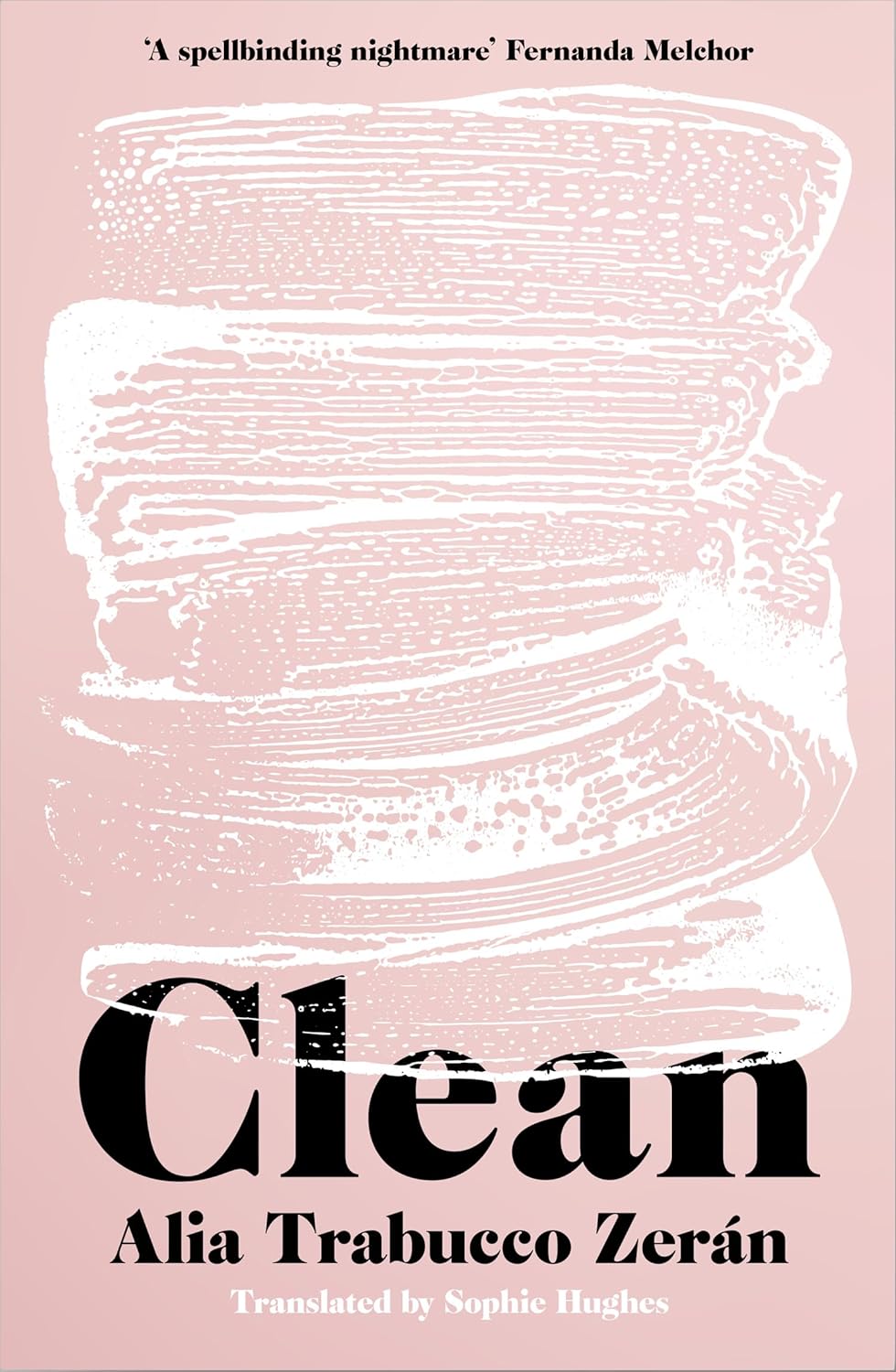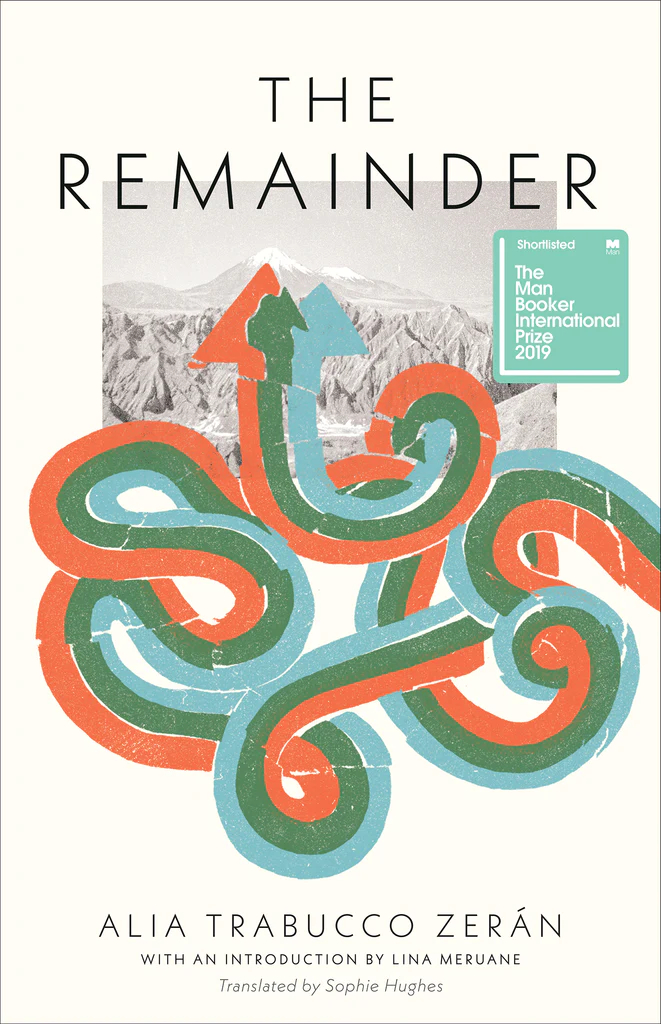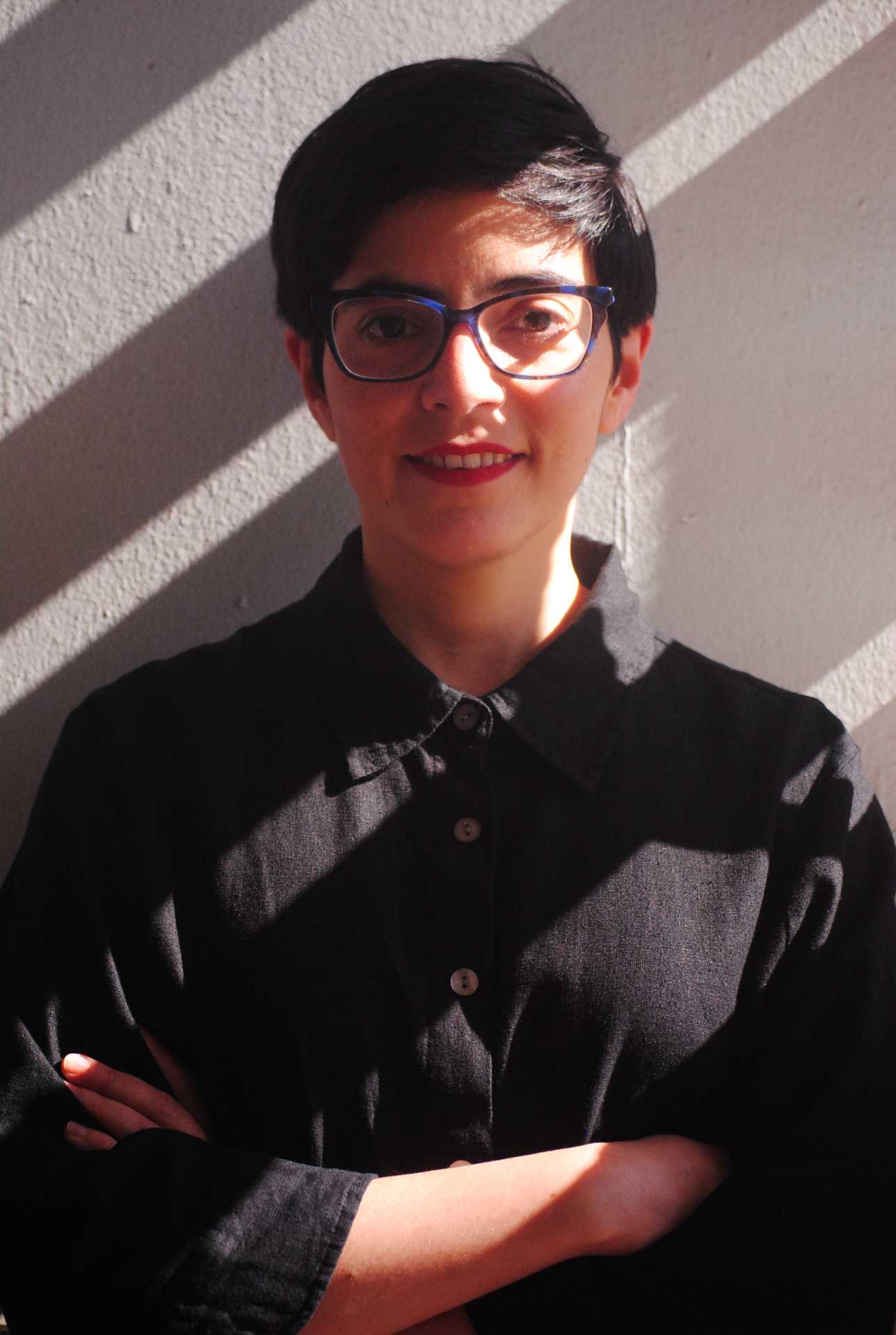Clean (Limpia)


Translated into English by Sophie Hughes
WINNER of the Prix Femina Etranger 2024
SHORTLISTED for the Inge Feltrinelli Prize 2025 (Italy)
This is the story of Estela, a domestic servant torn between her working life in the city and the memory of home, between her disgust for her ostentatious and troubled employers – at whose hands she suffers daily indignities – and her unsolved affection for them. When tragedy strikes in the home, previously unspoken class conflicts explode.
LIMPIA is a literary exploration of the complex set of emotions involved in domestic work relationships. The novel begins with an inescapable fact: a girl has died. From there it explores, in a fictional first-person account, Estela’s daily routine and shows how her apparently simple life turns into a repetitive and ultimately violent nightmare. Constructed in a circular way (the novel starts at the point where it ends), LIMPIA allows us to enter the intimacy of a home, the power relations that are established there and shows us how invisible and neglected this woman subjected to the "live in maid" regime is. In the tradition of "dirty realism", she talks about the family she looks after, the mother she left behind in the countryside, the loneliness so deep that her closest relationship is with a stray dog who comes to the house regularly. Her emotional detachment coupled with her anger and her exhaustion propel us forward to the heart of the novel, what happened to the child. Reminiscent of Jean Genet’s THE MAIDS, LIMPIA is an astonishing, electrifying novel.
"What a spellbinding nightmare Alia Trabucco Zerán has written. A biting, addictive portrait of the rot ‘good families’ conceal."
- Fernanda Melchor
“Grippingly original, a book of intense power.”
– Philippe Sands, author of The Last Colony
"Compelling, claustrophobic and irresistible, Clean is both a masterclass in suspense and a clear-eyed portrait of isolation and grief. Extraordinary."
– Paula Hawkins, author of Blind Spot
“Alia Trabucco Zerán is a powerhouse. In Clean, she writes with deadly precision about class, power, privilege and family. The result is terrifying, explosive and exhilarating”
– Katie Kitamura, author of Intimacies
"A white-knuckle ride that kept me gripped from the very first page."
- Alice Slater
"In this dazzling and overwhelming novel, Alia Trabucco Zerán lifts the veil on the long literary tradition of the Chilean house employee to peek into the cruelty and the true horror of the condition, to reorganise the perverse journey taken by affections and class hatreds in order to look for an irreversible transformation."
- Lina Meruane
"With the strength of an indomitable voice, Alia Trabucco Zerán creates with Limpia a very lucid, ruthless and brutal novel."
- Federico Falco
“Clean is brutal, beautiful, feverishly propulsive, a novel to lose yourself in. It leaves you angry, saddened, and completely mesmerised. I will read whatever Zerán writes next. Just stunning”
- Jenny Mustard, author of Okay Days
“A pacy yet vivid novel about class, intimacy and the loss of self through service. Clean had me holding my breath and endlessly switching my loyalties and sympathies. Plus I would read anything Sophie Hughes translates”
– Jen Calleja, author of Vehicle
"An amazing novel, using the monologue of a woman whose only possession is her voice."
- Emiliano Monge
"Trabucco Zerán captures vividly the drudgery of Estela’s domestic tasks. What comes across most powerfully is her profound loneliness…expertly translated from Spanish by Sophie Hughes… a rich and compelling read…Uncomfortable and provocative, Clean is a chilling account of one woman’s struggle to find meaning in the menial, but also an indictment of a society’s overreliance on the unacknowledged exploitation of its domestic workers."
- ÁNGEL GURRÍA-QUINTANA, FINANCIAL TIMES
"This unnerving Chilean literary thriller cuts like a knife… Trabucco is a rising star."
- MADELEINE FEENY, THE BOOKSELLER
"Heartbreaking, furious, and a modern masterpiece!"
- LitHub
"One of the most powerful voices of current Chilean literature. [...] Deliciously distressing, addictive, Limpia portrays the world of our everyday life that can turn into a storm for those who are fragile [...]Alia Trabucco Zerán’s writing arises from a mixture of observation, imagination, intuition and thought. Yet at the same time she allows herself to be carried away by the freedom of the trade."
- Babelia
"Those who read Limpia are met with life looking straight at them, stripped of any mask and without the option to look the other way. It is honest in its reflections, direct in its tone, sincere in its statements and enriching in the appeals it makes. (…) A novel that gives you no escape [...] Acidic, intelligent, coherent and authentic."
- El Diario
"A story of alienation and power: [...] Alia Trabucco explores the unhappiness and dissatisfaction of adults. [...] A twist on brutality as a territory for reflection (...) "[Along with Deepti Kapoor, Trabucco] pumps Highsmith's cold blood with force. They share an idea that can take us out of the world we have created for ourselves like a tree house, to bring us back into it. Tell a story, write it or spit it out. Spraying the reader with cold blood"
- ABC Cultural
"Trabucco's work is full of powerful scenes that combine with incredible mastery explosions of language with implosions of plot and vice versa."
- El País
"Each book of hers is radically different, as if Trabucco, instead of looking for an exacerbation of her style, wanted to settle into a permanent scriptural imbalance. Her obsessions: the urgency of memory and the passionate search for the future, feminist discussion, anger as a political tool, understanding personal stories as social stories, poetic and thinking work from language."
- El Tiempo
"A great and intense novel. It is not surprising that it is being published in so many countries"
- Politiken (Denmark)
"An intelligent, staggering novel ... Alia Trabucco Zerán is one of the outstanding voices of contemporary Latin American literature."
- Frankfurter Allgemeine Sonntagszeitung (Germany)
"Alia Trabucco Zerán is able to immediately create tension and an intense atmosphere. ... She proves herself to be a master of detailed, memorable scenes and images."
– Zeit Online (Germany)
"A masterful author"
–La Lettura (Italy)
"With Estela's unforgettable voice, Alia Trabucco Zerán brings to life a claustrophobic class conflict within the home walls."
– Elle (Italy)
"A bold, profound novel. Alia Trabucco Zerán has a maid reflect on major themes such as time, language, and memory. This literary tour de force results in a striking novel about a woman who is never truly seen."
– de Volkskrant (Netherlands)
"What makes Clean so special is, on the one hand, the tension that Alia Trabucco Zerán manages to evoke and, on the other hand, its narrative form. […] The storyteller carries you along masterfully. […] Clean is an outrightly impressive, finely translated novel, in which Trabucco Zerán lets worlds collide – rich and poor, city and countryside. The reality is violent, the literary answer is layered. It is about not being knocked down; it is about surviving. Here, an author grants a voice to those who are never heard. And what a voice it is."
– NRC Handelsblad (Netherlands)
"It is already here – the best novel of the year"
– Kulturnytt P1 (Swedish national radio)
"CLEAN is all at once a bitter class depiction and a boundary-crossing thriller, an anxiety-ridden dream in which contemporary crises seep in and dissolve the given order. One reads it almost in a rush."
– Dagens Nyheter (Sweden)
"It is a novel that has been exceptionally highly praised since it was published in Swedish a few weeks ago. And yes, it is just as fantastic as claimed. The language is magnificent, not to mention hypnotic (…). I am filled with irrepressible e joy at the thought that a short novel can be so overwhelming."
– Sydsvenskan (Sweden)



